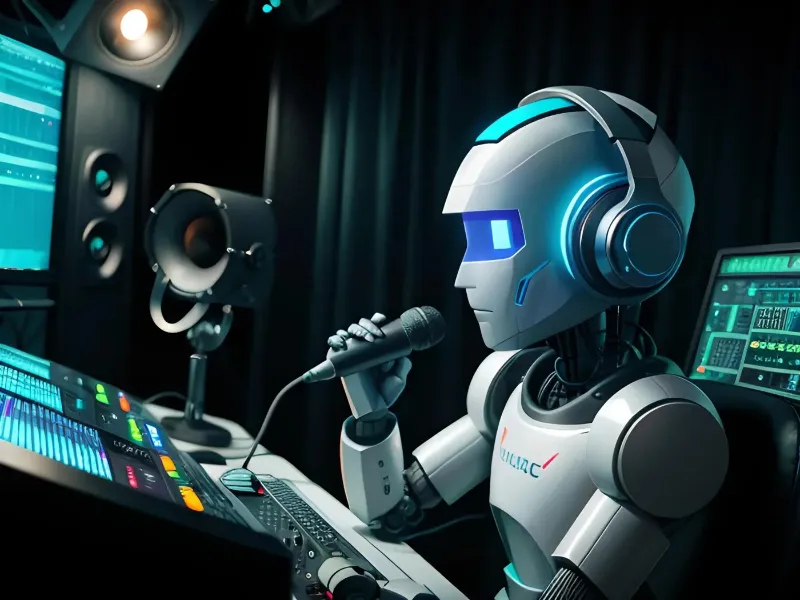AI virtual sports anchors offer significant efficiency benefits, but the unique charisma and personality of human anchors remain irreplaceable. The Paris Olympic Games are set to pioneer a groundbreaking advancement by officially introducing virtual sports anchors, marking a new era in AI-driven sports commentary.
The latest advancements in technology are transforming the landscape of sports reporting, with a groundbreaking shift evident at the Paris 2024 Olympic Games. NBC debuted artificial intelligence-powered virtual sports anchors, revolutionizing the way the games are covered. This innovative approach not only enhanced the reporting experience for the Paris Olympics but also signaled the dawn of a new era in intelligent broadcasting for major sporting events.
AI virtual sports anchor: New trend of Olympic Games watching
NBC is set to produce nearly 7 million personalized Olympic highlight videos during the Paris Games, offering viewers customized recaps tailored to their individual preferences. This cutting-edge initiative ensures that audiences can enjoy a personalized Olympic experience, with highlights that cater to their unique interests and viewing habits.
In a groundbreaking move, the Paris Olympics will feature virtual sports anchors, marking a new era in AI-driven commentary. NBCUniversal is leveraging generative artificial intelligence (AIGC) and AI speech synthesis to introduce a feature called “Your Peacock Daily Olympic Recap” on its streaming platform.
The AI virtual anchor’s voice is modeled after renowned sports commentator AI Michaels, capturing the distinct tone and style he brought to NBC broadcasts. This blend of Michaels’ iconic voice with advanced AI technology offers a commentary experience that is both familiar and innovative, providing audiences with a refreshing take on Olympic coverage.
During the Paris Olympic Games, a unique Olympic AI anchor will bring you live coverage from the heart of the action, immersing you in the vibrant energy and romantic ambiance of Paris.
Peacock subscribers will enjoy a customized daily video playlist tailored to their preferences throughout the Games. This playlist will include racing highlights and a variety of other content, such as behind-the-scenes footage, top plays, and memorable moments. The experience will be enhanced by voice commentary from the legendary broadcaster Al Michaels, powered by artificial intelligence. The AI-generated commentary and synthesized speech are based on models trained using data from Michaels’ past performances.
AI technology has deeply integrated into every aspect of the Olympic Games, effectively addressing past challenges in viewing experiences while introducing innovative ways to communicate, watch, and interact. This advancement has significantly enhanced audience engagement and immersion, offering a richer and more participatory experience for viewers.
AI sports anchors do not replace human anchors
AI virtual sports anchors may excel in delivering information efficiently and consistently, but when it comes to emotional engagement, charisma, and adaptability, human anchors still hold a distinct advantage.
- Emotional Connection: Human sports anchors have the ability to infuse their commentary with genuine emotions through their tone, expressions, and body language, which can ignite excitement and enthusiasm among viewers. While AI can mimic emotional tones, these simulations often lack the depth and authenticity that come naturally to humans.
Imagine watching a high-stakes sports event, only to hear commentary that feels robotic and formulaic. It’s hard not to feel your excitement wane in such a scenario, isn’t it?
- The Art of Language: Real anchors possess the ability to craft beautiful language through spontaneous improvisation and personal flair. They can tailor their linguistic style to match the mood of the event and the reactions of the audience. While AI can generate fluent language, it often lacks the natural elegance and adaptability that human commentators bring.
The sports commentaries of CCTV hosts, with their unique literary charm and deep humanistic insight, have garnered widespread admiration and affection from audiences.
For example, when describing Guan Chenchen’s performance in the women’s balance beam final, a commentator poetically remarked, “A giant ship is safest when anchored in the harbor, but that’s not its purpose.” This metaphor beautifully captured the significance of attempting difficult maneuvers.
Similarly, renowned CCTV commentator Chen Ying reflected on Japanese figure skater Yuzuru Hanyu with the powerful words: “He reminds me of a saying—fate whispers to the warrior, ‘You cannot withstand the storm.’ The warrior whispers back, ‘I am the storm.’”
Personal Charisma: Viewers often rely on the personal charisma and distinctive style of live anchors. This charm stems from the anchor’s personality, experience, and unique storytelling approach, which are challenging for AI to authentically replicate.
Handling Emergencies: Live anchors are adept at quickly adapting their expressions and managing unforeseen situations during live broadcasts. While AI can be programmed to handle routine issues, humans excel at flexibility and judgment when confronted with complex or unexpected scenarios.
Cultural and Contextual Depth: Human anchors possess extensive cultural knowledge and personal experiences that allow them to infuse their commentary with cultural and historical references, enriching the content. AI, despite its access to vast information, often lacks the nuanced understanding and contextual application that human anchors provide.
Real-time Interactivity: During live broadcasts, human anchors can engage with the audience in real-time, respond to questions, and share personal perspectives, making interactions more engaging and dynamic. Although AI can interact, such interactions may come across as mechanical and less nuanced.
With the continuous development of AI technology, future sports reports will be more intelligent and personalised. The introduction of AI virtual anchors is just the beginning of this change. Let’s wait and see how AI technology will further change our experience and bring more surprises.
